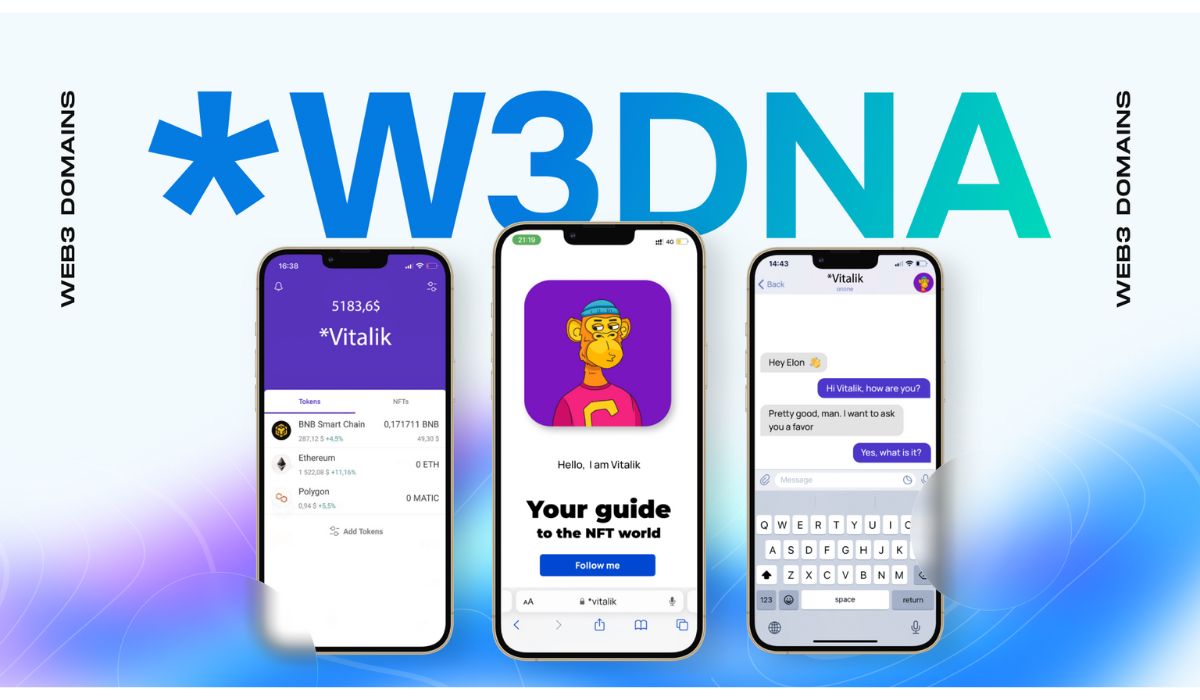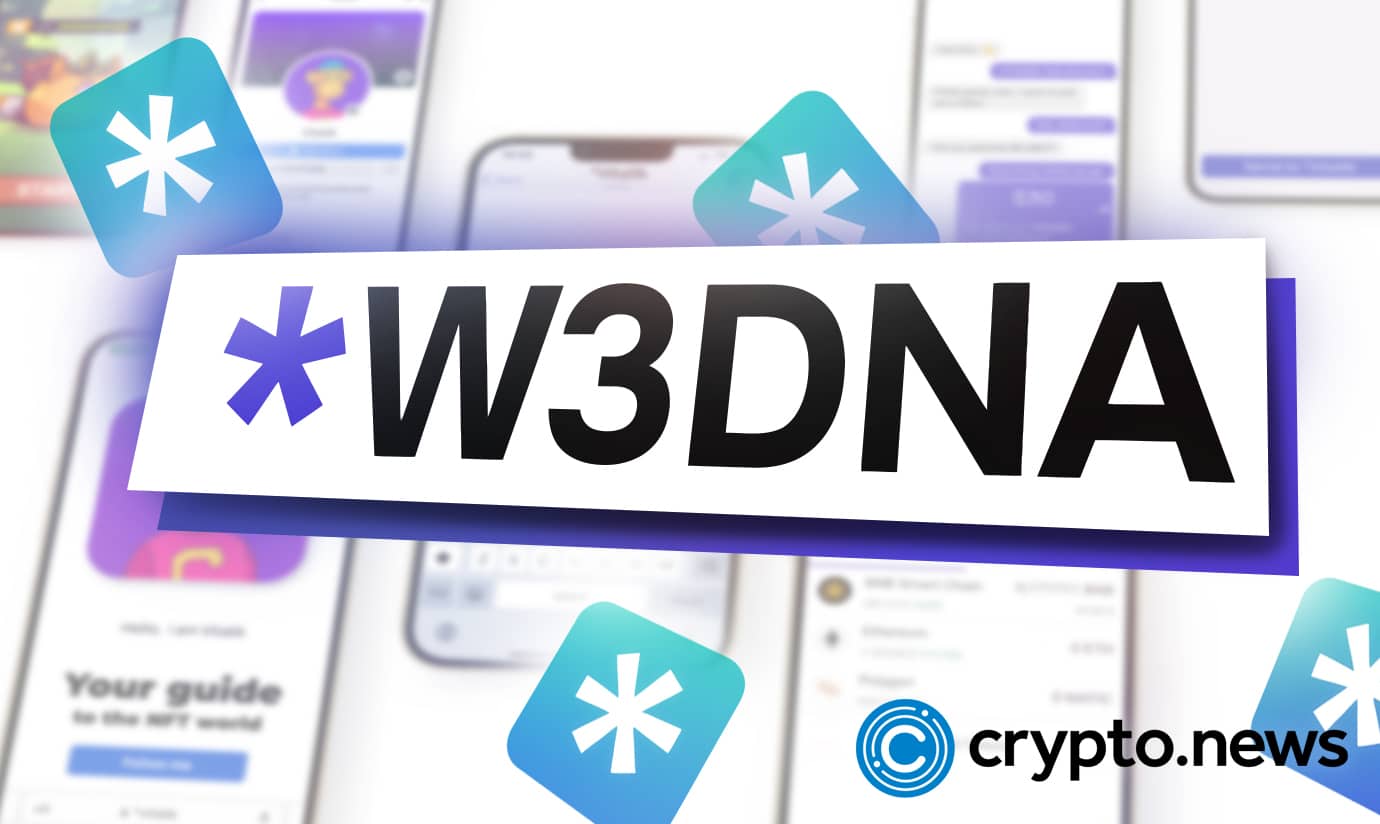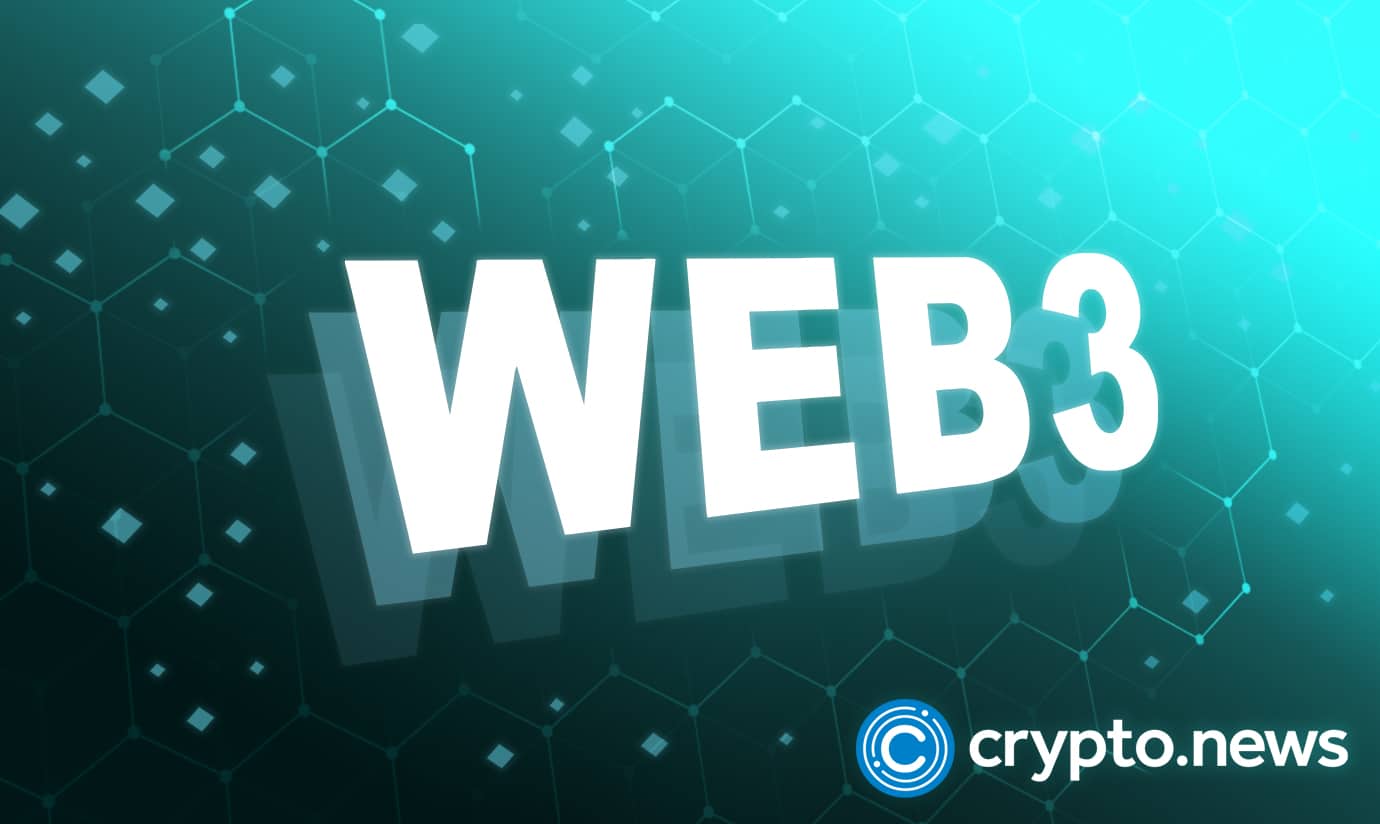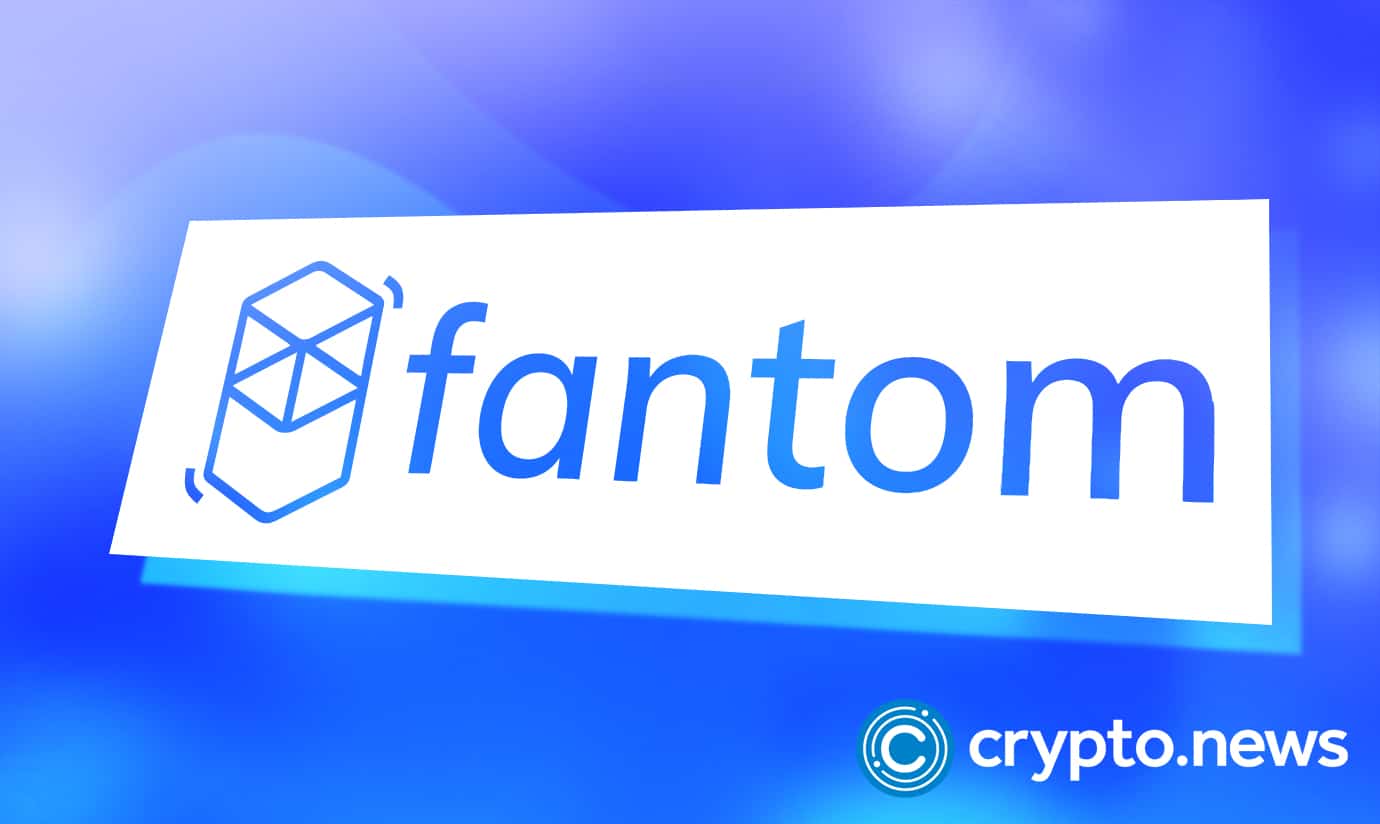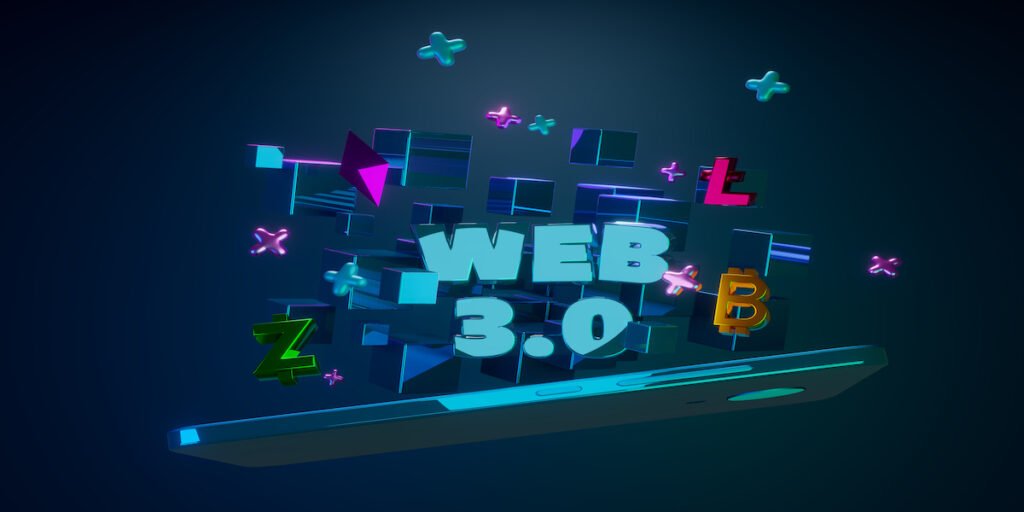
2024-1-31 03:54 |
The internet is on the cusp of a radical transformation thanks to the advent of Web 3.0. This new version of the web is underpinned by blockchain technology, offering a decentralized and user-centric online experience. Crucial to this transition are Web3 domains, which represent a novel approach to digital identification and website visibility.
For the uninitiated, Web3 domains may seem like an arcane tech concept with relevance only to the blockchain elite. However, the reality is quite the opposite. As decentralized domains are on the verge of becoming commonplace, understanding their intricacies is critical, not just for staying ahead of the curve, but for foundational knowledge in a future where the digital and financial realms are even more intertwined.
In this comprehensive post, we will delve into the world of Web3 domains, elucidating why these domains are poised to redefine online interaction and why, whether you’re an individual or a business, you’ll likely find that you need one in the not-so-distant future.
What Is a Web3 Domain and How Does It Differ From Traditional Domains? A Glimpse into Web3 DomainsWeb3 domains, sometimes referred to as decentralized domains, are Internet domains that are hosted on blockchain platforms, such as the Ethereum blockchain. These domains function within a decentralized infrastructure and are part of the broader Web3 ecosystem, which emphasizes security, privacy, and user control over data.
Unlike traditional domains that are administered by central domain registrars and internet service providers, Web3 domains don’t rely on a central authority for registration and maintenance. They leverage smart contracts on the blockchain for registration and resolution, ensuring consensus-driven operations without a single point of failure.
Understanding the Concept of Web3 DomainsWhat makes Web3 domains unique is their association with blockchain systems, particularly Ethereum and the Ethereum Name Service (ENS). These domains end with extensions like “.eth” and are ‘owned’ rather than ‘rented’ by the registrant, which is a paradigm shift from the subscription model typical of traditional domains.
Ownership in this context doesn’t just imply exclusive use but also the execution of rights and control facilitated by the blockchain. It means owning a piece of the Internet as a digital asset that can be transferred, sold, or used as collateral in the burgeoning decentralized finance (DeFi) landscape.
Comparison of Web3 Domains and Traditional DomainsWeb3 domains and traditional domains differ on the technological backbone and governance model. Traditional domains are governed by the Internet Corporation for Assigned Names and Numbers (ICANN) and are stored in centralized domain name system (DNS) servers. In contrast, Web3 domains are decentralized, secure, and not susceptible to domain seizures or censorship. They also offer the programmability enabled by smart contracts, which conventional domains lack.
Benefits of Transitioning to Web3 Domains Unpacking the Advantages of Web3 DomainsThe benefits of Web3 domains are broad and multifaceted:
Security:The security benefits are considerable since blockchain systems are inherently secure against many common cyber threats. In Web3, domains are protected by cryptographic keys, significantly reducing the risk of domain hijacking or spoofing.
Ownership and Control:Web3 domains provide a novel trinity of ownership, control, and identity in the digital space. This enhanced control allows for finer permissions management and the creation of human-readable names that correspond to complex blockchain data and resources.
Cost-Effectiveness:The cost structure is inherently more efficient with Web3 domains. Once registered, there’s no need to annually renew ownership, and the absence of intermediaries can lead to a reduction in maintenance costs over time.
Cryptocurrency and Wallet Integration:Integration with cryptocurrency wallets enables seamless transactions and enhances the user experience for crypto holders, traders, and enthusiasts who navigate the decentralized web environment.
How Do Web3 Domains Work With Cryptocurrency and Blockchain? Integration of Web3 Domains with Cryptocurrency WalletsThe core feature of Web3 domains is their integration with cryptocurrency wallets, which enables the use of a human-readable address for wallets. This integration fuels a more intuitive and secure experience for users who can send and receive cryptocurrency using their personalized domain.
The Role of Web3 Domains in dAppsDecentralized applications (dApps) are a central aspect of the Web3 movement, delivering services and experiences without reliance on a central entity. Web3 domains serve as the gateway to these dApps, offering a familiar browsing experience akin to accessing a traditional website.
Using Web3 Domains for NFT CollectionsNon-fungible tokens (NFTs) have taken the art and collectibles world by storm, and Web3 domains play a vital role in this space. They can be used to build galleries or showcases for NFT collections, with each domain pointing to a unique digital asset.
Security and Authentication Within Web3 Domains and Blockchain The Immunity of Web3 Domains to Common Cyber ThreatsThe powerful immutability and security paradigms of blockchain technology apply to Web3 domains, making them resilient to many forms of cyberattacks that plague traditional DNS systems. Domain information on the blockchain is distributed, with tamper-evident records that are transparent and public.
Authentication Mechanisms for Web3 DomainsAuthentication for Web3 domains revolves around managing private keys that control the domain. This is a stark contrast to the conventional username/password model and is a fundamental feature of the blockchain – the user is the only entity in the chain of authentication, making it a highly secure process.
What Are the Practical Use Cases for Web3 Domains? Simplifying Wallet Addresses with Web3 DomainsOne of the most palpable practical benefits is the use of Web3 domains to simplify complex wallet addresses. Instead of a lengthy string of seemingly random characters, a Web3 domain can function as a primary wallet address, which is more user-friendly and less prone to transaction errors.
Enabling Digital Identity Through Web3 DomainsIn the context of digital identity, Web3 domains can be used to create pseudonymous or verified profiles that are connected to a user’s digital assets and activity on the blockchain. This could be a game changer for online identity verification, privacy, and personal branding.
Replacing Traditional Domains in Some CasesIn certain use cases, Web3 domains can serve as a direct alternative to traditional domains. They are particularly well-suited for projects that want to maintain a high level of autonomy and for individuals seeking an additional layer of security and control over their online presence.
Facilitating Token Transfers and TransactionsWeb3 domains can act as a funnel or gateway for token transfers and transactions, providing an intuitive starting point for financial interactions on the blockchain. The recipient of a payment, for instance, could share a Web3 domain for a smooth, familiar transaction process.
Adoption of Web3 Domains in Various Industries and Applications Real-World Industry ApplicationsA spectrum of industries is poised to benefit from Web3 domains. From e-commerce to supply chain management and from digital art to content publishing, the adoption of Web3 domains paves the way for new and innovative applications across the board.
Exploring the Potential in Various Use CasesIn e-commerce, for example, a Web3 domain could represent a DAO (decentralized autonomous organization) which collectively owns an online store, with member-owned Web3 domains pointing to their wares. In content publishing, a Web3 domain could signify ownership and authorship of a piece of digital content.
The Shift Toward Blockchain-Driven InnovationThe growing interest in blockchain-driven solutions indicates a broader movement toward a technology that promises a more equitable, transparent, and efficient digital future.
How to Register and Use a Web3 Domain Process of Registering a Web3 Domain Through ENSThe Ethereum Name Service is one of the most prominent Web3 domain services. To register a domain through ENS, you’ll typically need an Ethereum wallet and some ether (ETH). The process involves interacting with smart contracts and can be done through various interfaces compatible with the ENS protocol.
Creating and Managing Web3 Domain Records and SettingsOnce registered, you can set up your Web3 domain to point to different services, such as a website, an IPFS hash (for decentralized hosting), or an Ethereum address for receiving payments. This process is akin to DNS control panels for traditional domains but is achieved through blockchain transactions.
Transferring Ownership or Selling a Web3 DomainOwnership of a Web3 domain can be transferred to another Ethereum address or sold through a secondary marketplace. The transaction will be recorded on the blockchain and will not require the assistance of a registrar.
Resolving Web3 Domain Conflicts and DisputesIn the unlikely event of a conflict, the resolution process for Web3 domains is significantly different from the conventional approach. Blockchain-based dispute resolution may involve community governance mechanisms to arrive at a consensus.
Utilizing Web3 Domains for Personalized or Brand-Centric URLsWeb3 domains can be used for various personal and brand-centric use cases. A personal website for your online CV, a portfolio for an artist, or a dedicated page for your business can all be facilitated.
What Are the Benefits of Integrating Web3 Domains Into the Decentralized Web? Enhancing Security and Privacy Through Decentralized Web ArchitectureBy leveraging the security features of Web3 domains, the decentralized web architecture promises to deliver a substantially more secure and private experience for users. Encrypted communication channels and blockchain-based validation systems can make data breaches and unauthorized access a thing of the past.
Enabling Censorship-Resistant Publishing and Content DistributionThe decentralized nature of Web3 domains fosters an online environment that is resistant to censorship. Content creators and publishers can share their stories, ideas, and art without fear of suppression, as the blockchain infrastructure ensures that content remains immutable once published.
Empowering End-Users with Complete Control Over Their Web PresenceFor individuals, this translates to a level of autonomy and control over their online identities and communications that was hitherto inconceivable. Users can now truly own their domains and the content they host, without needing to trust third-party providers.
Aligning Web3 Domains With the Principles of Blockchain-Driven DecentralizationWeb3 domains are not mere witnesses but active participants in the decentralized movement. By aligning with the ethos of blockchain – decentralization, verifiability, and transparency – they play a critical role in the maturation of Web3 architecture.
In Conclusion: Why You Need a Web3 DomainAs the Web3 paradigm begins to replace the ageing Web 2.0 structure, the need for a Web3 domain becomes increasingly apparent. Whether it’s for personal branding, to facilitate seamless crypto transactions, or to partake in the burgeoning field of decentralization, having a Web3 domain is more than just a trend – it’s becoming a standard.
For businesses and individuals, the early adoption of Web3 domains is a strategic move that leverages the power of blockchain for competitive advantage. The benefits not only include enhanced security and privacy but also a more robust digital presence that’s future-proof and inclusive of the decentralized ecosystem.
As the transition to Web3 gains momentum, seizing the opportunity to integrate a Web3 domain into your online strategy could mark the beginning of a new era of digital engagement.
The post What Are Web3 Domains and Why Do You Need One? appeared first on NFT News Today.
origin »Bitcoin price in Telegram @btc_price_every_hour
Miner One token (MIO) на Currencies.ru
|
|




